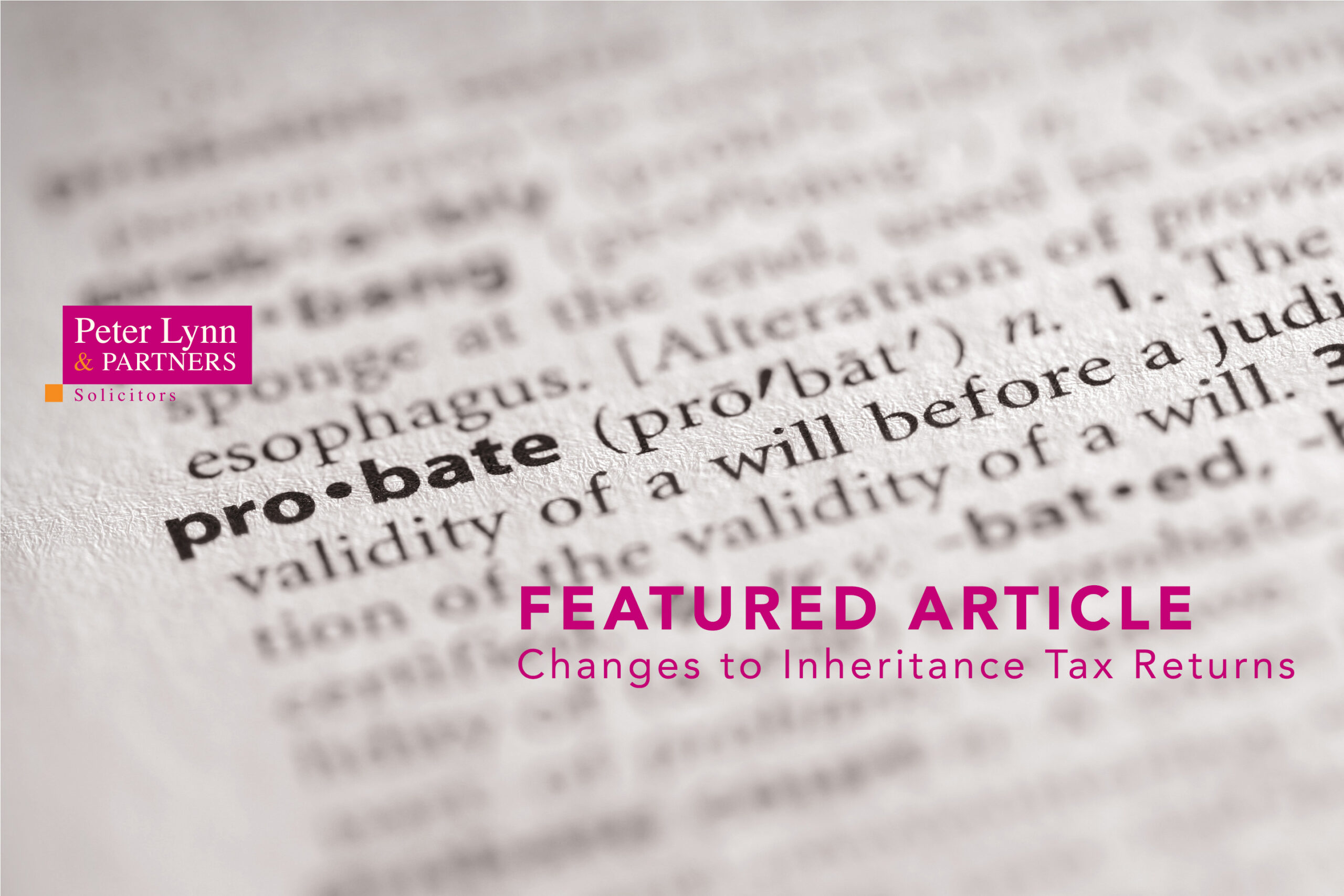Changes to Inheritance Tax Returns

On 1 January 2022, there was a regulation amendment that changed the way in which Inheritance Tax (IHT) was reported.
Prior to the change, you needed to submit an IHT return by way of form IHT205 (and sometimes IHT217) to HMRC as part of the application process.
Due to the new regulations, from 12 January 2022, an executor for an excepted estate where the death occurred on or after 1 January 2022, is no longer required to complete and return the IHT205 form (and IHT217 if applicable) to HM Courts & Tribunal Service as part of the probate application.
Changes to the IHT Threshold
In addition, the IHT threshold definition has been extended to include cases where only a portion of the available nil rate band was used when the first spouse/civil partner died, and a claim is made to transfer the unused portion to the estate of the surviving spouse/civil partner.
This means that Personal Representatives (the individuals who administer the estate of a deceased) will no longer be required to use the IHT400 route if the entire nil rate band is not available for transfer.
Furthermore, the gross estate limit for an exempt estate has been increased from £1 million to £3 million. This means that if the estate is less than £3 million in value and all assets above the IHT threshold pass to a spouse/civil partner/charity, the personal representatives (PRs) can apply to the probate registry for the grant without first submitting a form IHT400 to HMRC.
Probate Fee changes
Similarly, Probate Fees have been increased to £273 as of 26th January as opposed to £155 for professional applicants and £215 for non-professional applicants in a bid to streamline and simplify the process for users of the probate service.
What does this mean for the Probate Representative?
While these changes might be welcomed, applying for probate and administering an estate can still be a time-consuming and difficult process for bereaved families.
Solicitors can provide advice on complex matters where IHT is a concern or where overseas or Trust assets play a role in the estate. Solicitors can also assist you with your duties as a personal representative and advise on the potential risks associated with estate administration such as missing assets or beneficiary conflicts.
What to do next?
Although you can undertake the probate process yourself, it is prudent to seek the advice of a solicitor who specialises in matters of probate to prevent legal problems.
At Peter Lynn and Partners, we have one of the largest probate teams in the region and are perfectly placed to advise you.
To arrange a free initial meeting, please contact 01792 450010 or email [email protected]
Peter Lynn and Partners.
Preventing Legal Problems.